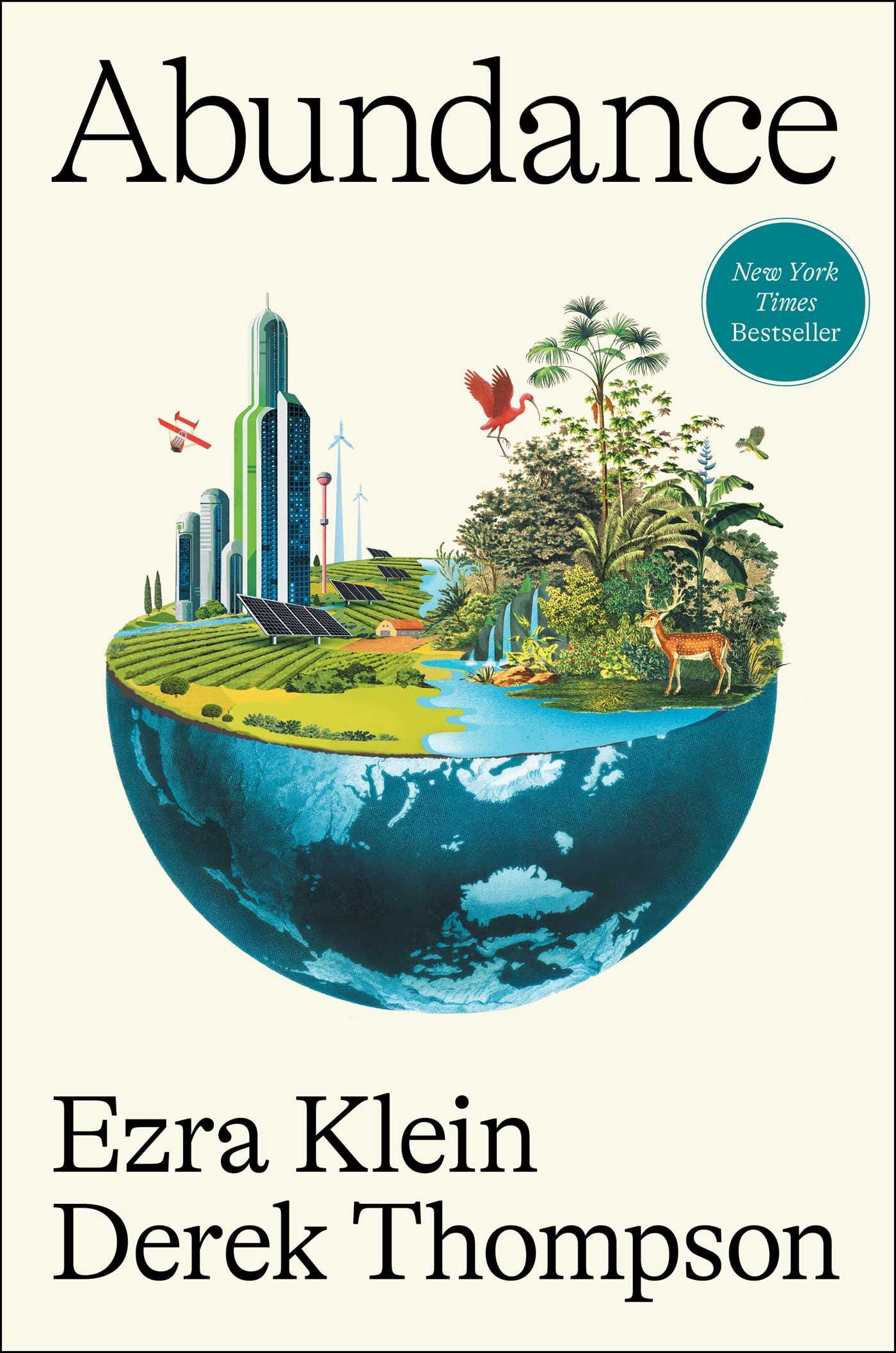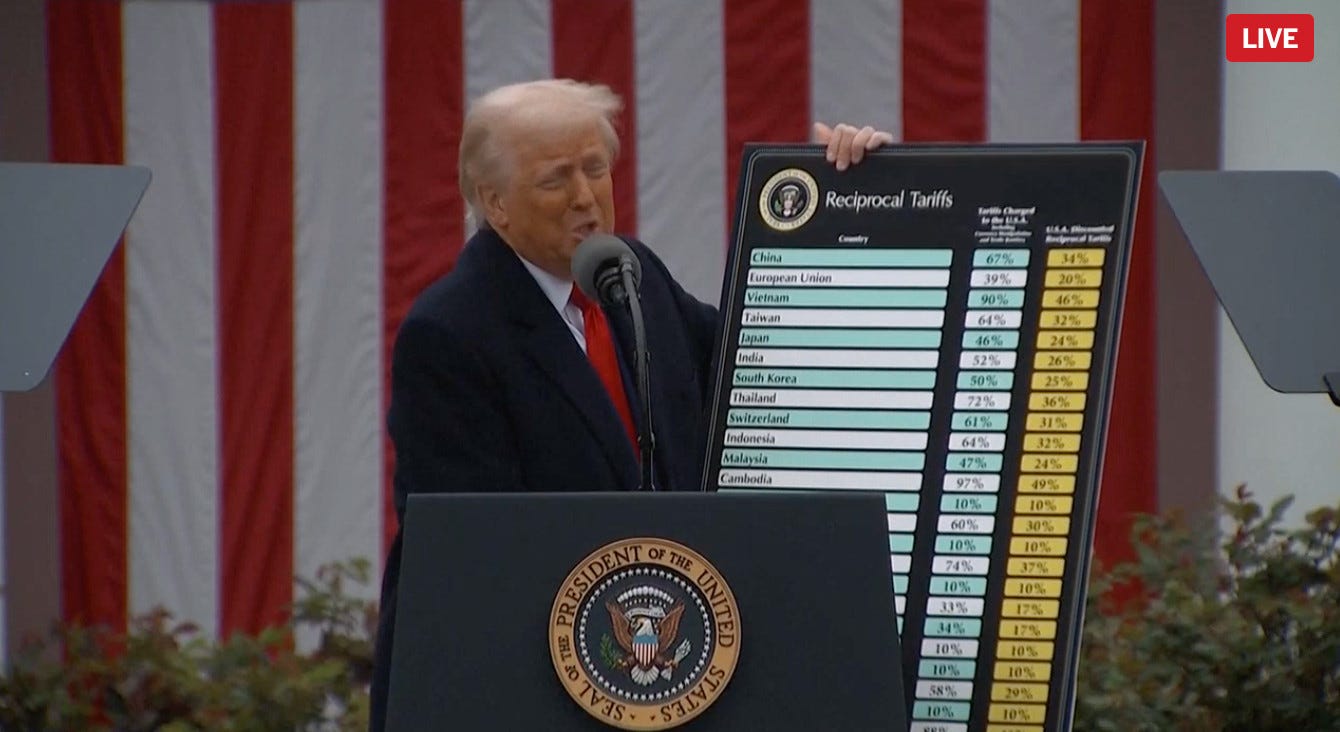Adam Tooze is wrong on the internet. Donald Trump flinches.
In the first post of what is promised to be two parts at his Chartbook, the eminent historian and political commentator, goes after an essay written by Naomi Klein and Astra Taylor on “End Time Fascism.” I’ll leave to others to defend Klein and Taylor, though I’ll say that I shared the essay with others and think it is a well-argued piece that pulls out an important strain of thinking from the muck of the right-wing fever swamp. I’m not particularly interested in the question of whether this version of fascism is “even bleaker than the original,” which seemed to gall Tooze (a scholar of the 20th century’s fascism).
It’s the characterization of Trump and Democrats and the future that I find so strange. Tooze:
Not only is the historical comparison far-fetched. But for progressives to focus their attention on that maniacal strain of the current far-right is to my mind an evasion of the rather more unsettling fact that Trumpism as a whole may have the attraction that it does not because it promises the “end times”, but because compared to the actually existing alternative in the USA today, the Democrats, it is actually more willing to talk about the future and to do so in bold and bright terms.
The argument that Tooze puts forward is that the tariffs and trade policy is “clearly intended to deliver on all three dimensions of a politics of the future,” whereas Democrats aren’t. This is shocking to Democrats who, apparently, are unwilling to talk about the future. Which feels weird since, I don’t know, it feels like we’ve had a cornucopia of such discourse recently, just lots and lots of it.
And yes, as my colleague Henry Farrell has pointed out, these discussions shouldn’t be over because we need usable futures.
But the idea that Democrats aren’t interested in talking about the future is a bit odd. Indeed, Klein and Taylor themselves are helpful thinkers about utopias and how to achieve them.
What seems to be exciting for Tooze in Trump’s rhetoric is that in the midst of all kinds of noise about trade policy, he sees a signal call to sacrifice.
what is truly original about the Trump-Vance project is that it not only rejects the neoliberal past and summons the spirit of blue collar America, it does so with a rhetoric of sacrifice. For the first time we have an American politics that actually talks about getting by with less. Of course it is not by accident that this new rhetoric of self-sufficiency is overtly gendered. It is dolls, and washing-machines, Chinese-made household goods that are the target. The gendered domestic order is affirmed at the same time as the proper masculinity of industrial work is affirmed.
The future that is being depicted is one of a nonexistent past where men were men, workers wore hard hats, women were women (and everyone was white, or quiet). To be clear, there’s no evidence that Tooze is defecting to Trumpism. This isn’t a future that he wants or thinks is good. But it is a future that he sees being articulated.
I’m much more dubious. The messaging around the tariffs has been anything but coherent. I don’t see how one can read this story about how Bessent and Lutnick took advantage of Navarro being out of the room to get Trump to pause the tariffs as anything other than the workings of an uncertainty engine.
Which makes this sentence from Tooze stand out: “But when push comes to shove, Trump and his spokespeople do not flinch.” A generous reader may say this refers solely and simply to the idea that Trump and Trumpians acknowledge that their trade agenda might cause some pain before things get better.
And, indeed, Trump does not always flinch. Trump does not flinch when he grabs a woman by the pussy, when he sends hundreds to gulags abroad without due process, and when he unleashes Russ Vought to rip the copper wiring out of the American administrative state.
But Trump has flinched on trade policy in a dozen different ways since April 2, and even before when monthly pauses to Mexico and Canada tariffs became a joke before the administration had even been in office for two months.
More than this, regardless from an individual line of Trumpian rhetoric, everything about his presentation oozes a very different message: that his child will still get dolls, pencils, and memecoin billions. He’ll still get a gilt Oval Office, and — and this is the seductive part for oh so many a grifter — if you’re close to him or the Right kind of American, you’ll get everything you want too.
Tooze continues:
The embarrassment for advocates of the Green New Deal and Bidenomics is that in pursuit of their visions of the future, Trump’s national economic strategists are far bolder in what they demand of the American public than their opponents in the Democratic party ever were. Trump’s trade policy is, in fact, what Green New Deal advocates never dared to be: A direct challenge to prevailing norms of American consumerism in the name of a better future.
This is too much. What Trump demands of the public is obedience. There is no discussion nor debate. There is no transparency. There is only graft (for himself, relations, and insiders) and obedience (for everyone else).
Robinson Meyer at Heatmap has a series of shitposts about Degrowth Donald, that is, that Trump’s actions are actually the kinds of policies that a degrowther might put forward in order to slow down the economy and mitigate climate change despite Trump’s denialism and downplaying of the climate crisis. But a couple of random ramblings about dolls and pencils does not make Trump an avatar for challenging American consumerism.
Perhaps this is too harsh. Perhaps the point of Tooze’s piece is somehow not its literal text but instead an implied subtext that complains about Democrats falling into a popularism that is afraid of telling the public anything that doesn’t poll well and that on many issues, perhaps especially on climate change, this is not enough. I suppose such a reading is possible and perhaps even plausible. It might even be close to an argument that I could imagine supporting: not popularism nor deliverism but leadership.
But right now, what we have in front of us in the White House and OMB and DOGE and the Penatgon is a whirlwind flinging shit everywhere, stealing the seed corn of American prosperity to take just a bit bigger bite at the tax cut apple before everything falls apart. The real work, the real sacrifice, is to fight him.








Tooze indeed went off the rails. He strained much too hard to see a forest where there are only some scattered trees. Trump has not even remotely articulated a call for collective, community sacrifice in favor of a better future. Trump's time horizon rarely extends one week.
And he is quite typically not willing to sacrifice anything that would keep him from his regular Sunday afternoon golf game.
Notably, after his little sit down with Zelensky at the Vatican during the Francis funeral ceremonies, the Ukrainians asked for a further session after the funeral. Trump told them he didn't have time - he had to get back to Bedminster, NJ - his golf course!
Trump asking for a turn away from consumerism? This is a guy with one of the most conspicuous consumption outlooks in recent memory. If it can be gilded, he wants it gilded.
(I don't know why he doesn't have a super yacht - perhaps it is his shark phobia.)
I agree with you. You've probably already seen Paul Musgrave's article on Substack "Partial-Equilibrium Trump Fallacies" that describes the process of smart people trying to back-calculate a coherent policy agenda from Trump's actions.
When I was in college, I asked a classmate what his Ph.D. dissertation was about. He started describing it, illustrating with a very complex diagram on a pad of paper. I couldn't follow this at all, so I picked a random part of the diagram and asked what it was. He responded by tearing the sheet off the pad, crumpling it up, and changing the subject. This was his MO. He'd say a bunch of smart-sounding but ultimately meaningless things and people would feel intimidated. (Coda to the story: a) he never finished the Ph.D; b) he founded a company that made him fabulously rich; and therefore c) I'm clearly the fool in this story.)
Tooze is similar. If we let D = the intellectual distance of a topic from the political economy of the Third Reich, then the insights of a Tooze article are proportional to 1/(D^2). You can't be a public intellectual talking about WW II all the time, so Tooze has expanded his reach using a similar process as my extremely wealthy classmate.
I was taken in by Tooze, too. After reading too many weird pieces like the one you've described (or the ones where he liberally quotes someone else interesting, including extensive copy/paste of their illustrations), I should cancel my paid subscription to his Substack and pledge it to yours instead.